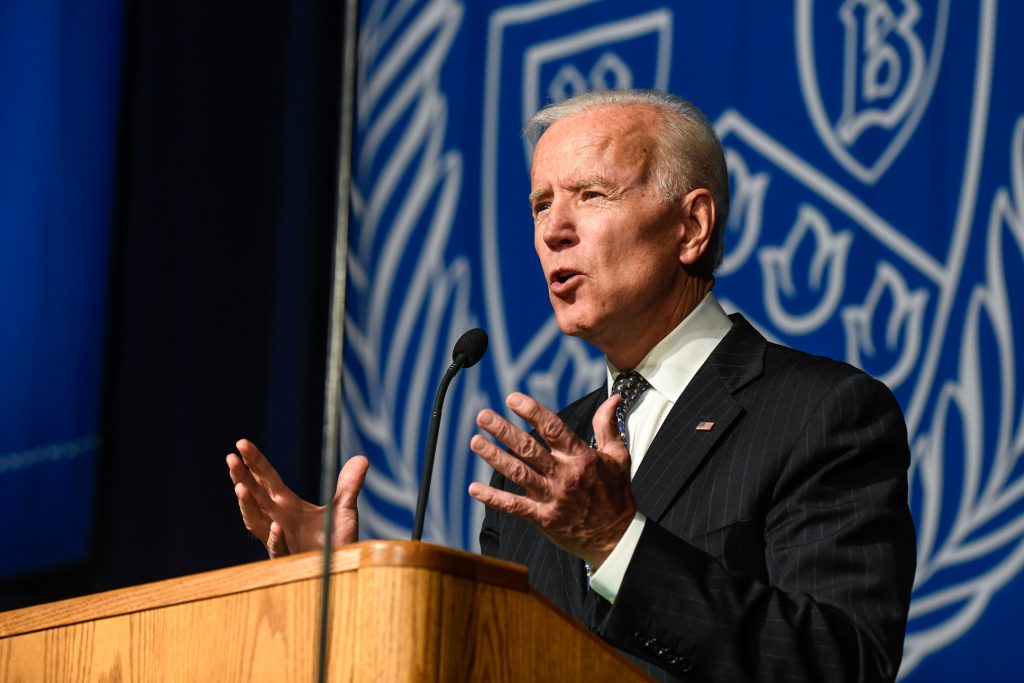

As a lifelong Western New Yorker, I’ve had the opportunity to enjoy UB’s 32-year tradition of bringing world-famous speakers to Buffalo as part of the Distinguished Speakers Series. I’ve heard stories from authors, experts and innovators, from President Jimmy Carter to Soviet commentator Vladimir Pozner to Nobel laureate Malala Yousafzai. Since my days as a UB student and throughout my career, listening to leaders and their words of wisdom has inspired to me see the world differently, to be a better leader and to help others learn to become great leaders too.
In my role as executive director of the UB Center for Leadership and Organizational Effectiveness, I’ve been asked, “If you could meet any person in the world today and ask one question, who would you choose and what would you ask?” Last week, I had my dream opportunity to ask that one person one question, and it was Vice President Joe Biden in front of a sold-out arena of 6,500 people.
Hoping to give the audience a takeaway they could apply in their own lives, I asked: “Mr. Vice President, during your terms in the U.S. Senate and as vice president, you served under eight different presidents of the United States. What are the three most important leadership attributes you saw in these past presidents that the next president would ideally have?”
Biden’s response was:
“The single most important trait for a president is to have a good temperament. To have the right temperament, it matters a lot.
“Second, you look at him or her and [know] they’re authentic, that whatever they’re doing is not derived or directed out of their self-interest. You can smell it. You can taste it. You can see it when it happens. And I think it is really, really important in order to instill some confidence in the American people.
“The third thing is a willingness to surround themselves with people who are smarter than they are. All the presidents I have known, they’re all bright men so far. … But here’s the deal: The people I look to from the time I was your age on — who were the most successful, the quickest — [were] the ones who figured out their genuine strengths and their genuine weaknesses. Instead of trying to correct their weaknesses, they compensated for them by surrounding themselves with people who had strength where they were weak. They were willing to listen. … They’re never afraid for you to make an argument that, in fact, is different than theirs, and they listen. They have enough confidence in their own intellectual capacity to be corrected. They’re willing to engage and be corrected. Be wary of the leader who thinks he’s always right.”
As I was heading home, I received a message from a colleague who asked her son Gunar what the top message was he learned that night. His response was immediate and clear: “Biden’s answers to the leadership question: temperament, authenticity and surrounding yourself with smart people.”
I hope many people will apply what Gunar and I learned about leadership that night: Strong leaders surround themselves with people who will challenge them. They listen to and engage with others who have different ideas and strengths than their own. And, through successes and struggles, good leaders maintain a temperament and authenticity that inspires and instills confidence in those around them.
Molly Anderson is executive director of the UB School of Management’s Center for Leadership and Organizational Effectiveness (CLOE). CLOE is a proud sponsor of the 32nd annual UB Distinguished Speakers Series, which will feature a leadership question for each speaker.
